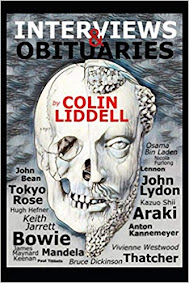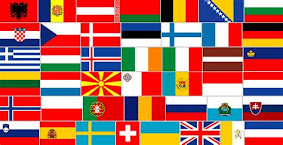Audio Version
Like most people, I never questioned the basis of the society that I lived in. Growing up in Leicester, it was assumed that multiculturalism was a fact of life. This has to be distinguished from seeing ethnic diversity as a positive thing, in and of itself. The fact that half of the city was non-white was just another quirk of geography, like living in a frost hollow or being more exposed to a sou’wester. A majority of people are political only in a provisional sense and those of us who spend our time browsing the wilder corners of the internet, never mind reading The Mail or The Sun, are in a minority. The average man has political opinions, often very deeply held, but they are not central to his life and nor are they consistent. I have seen people simultaneously support gay pride parades, castrating paedophiles, renationalising railways, wind-power, Gurkha immigration, repatriating blacks and reintroducing corporal punishment.
Politics means as much to the average man on the street as home-redecoration or bathroom-fixtures do to me. I might be mildly interested now and then. If I am forced to live in a particularly hideous house with faded rose-motif wallpaper, last decorated by an octagenarian Edwardian straggler in the 90s, then the mind will snap and I will march down to B&Q, gut the whole thing and lather it all in eggshell. But if asked to adjudicate between avocado and white toilets, or between bare paint and Artex spirals, then I really couldn’t give a toss. I have more important things to do than spending time on changing something that has no meaning to me or my life. We might complain that the comparison is trivial and that politics is more important than heated towel rails. But this is how the average man thinks, not how we would like him to think.
Politics means as much to the average man on the street as home-redecoration or bathroom-fixtures do to me. I might be mildly interested now and then. If I am forced to live in a particularly hideous house with faded rose-motif wallpaper, last decorated by an octagenarian Edwardian straggler in the 90s, then the mind will snap and I will march down to B&Q, gut the whole thing and lather it all in eggshell. But if asked to adjudicate between avocado and white toilets, or between bare paint and Artex spirals, then I really couldn’t give a toss. I have more important things to do than spending time on changing something that has no meaning to me or my life. We might complain that the comparison is trivial and that politics is more important than heated towel rails. But this is how the average man thinks, not how we would like him to think.
So what does the average man in Leicester do when confronted with mass-immigration? He probably dislikes it, even as he carries on voting for the Labour Party. Although he can’t articulate or express his opposition coherently, he knows that something wrong is happening. Places that he remembers from his youth, where he spent time playing with childhood friends, where he had his first kiss, where he bought his first record, where he grew up and became a person, have changed utterly. Geographically, everything is the same. But mentally, that part of England is completely lost and has been annexed by India, Pakistan or Somalia in all but name.
 |
| Brass rubbings in church: Not the most direct way to save the West. |
One of the unfortunate blind alleys that people can go down is Paleoconservatism. Summarising an ideology very briefly is not easy, but I suppose in an English context it means (very broadly): an opposition to mass-immigration, opposition to cultural Marxism, opposition to the European Union, traditional education, pro-Christianity, pro-foxhunting, pro-law-and-order, pro-family, anti-Islam, suit-wearing, Burke apotheosised, limited government, economic nationalism (up to a point), and a return to traditional values. Out of this word-salad, you can produce figures such as Roger Scruton, Peter Hitchens or Anthony Daniels, otherwise known as Theodore Dalrymple. All very reasonable stuff, and nothing that many people would disagree with.
But when we look at these three people, why is it that they are all so listless or full of despair? Peter Hitchens regards his writing as an 'obituary' for Britain and has given up any hope of changing anything politically. He regards all of the changes that have occurred over the last 60 years as irreversible. It was better that mass-immigration never happened, but now that it has happened, we have to get used to it. The Christian church is completely dead and we will all be Islamic in a century. The overwhelming sense is that of a man who has stared into the abyss for too long, or like Denethor has looked on the might of the enemy and seen only darkness and death. He is too old to leave, but his advice to young people is to emigrate! Get out while you can, get out to Canada, or New Zealand (never mind what the situation is actually like), flee, flee for your lives! This is not exactly a St Crispin’s Day speech designed to gird up the loins of young Englishmen.
Anthony Daniels has been writing the same column for the last 20 years. The English are utterly degenerate, slobs, violent, drunks, wife-beaters, swinish, fat, ugly, amnesiacs. They have no culture. They turn their cities into litter-bins. Their children are ignorant and badly-educated, the people are impolite and rude. I agree entirely with the good doctor. But is this enough? Like our archetypal Englishman earlier, who flees into the suburbs, it interests me that Dalrymple has moved to France. Are we seeing perhaps the same phenomenon here, as well as with Peter Hitchens? They lack an overall ideological sense, or an understanding of the wider perspective. They can analyse and correctly place the symptoms, but not diagnose the disease or prescribe a cure.
Roger Scruton is another figure who has more or less given up. Having fled to the country, he lives in a large farm in the Wiltshire countryside. He blankets his readers with a soporific prose style, unchanged since The Meaning of Conservatism, `Peterhouse Elevated` as a contemporary reviewer put it. Book after book is churned out, on aesthetics, music, sex, Spinoza, organ-playing, Anglicanism, childhood regrets etc. But what does Scruton think should happen? How does Scruton propose to put humpty-dumpty back together again? He isn’t quite sure, but in lieu of that he can spend his time living as Squire Scruton of Wiltshire, hunting hounds and writing wine-reviews. He has more or less emigrated mentally from contemporary England.
So what is it that these fine fellows cannot see?
 |
| "England, my England" |
From "A Prophet in His Own Land" by Roger Scruton:
"I was very impressed visiting Katharine Birbalsingh’s free school the other day — 110 faces, all of them black except for a little handful of Romanians — in which there was real discipline and they were being taught the old curriculum and the teachers were really trying to integrate these children into what they saw as the culture to which they were destined." So the battle is for continuity? ‘Yes, and for the survival of western civilisation. It’s not as though we’ve lost it completely. We still have got this civilisation — it’s all we’ve got, and it’s not as though we’re going to be able to replace it with any other.`
For these three, race isn’t real. Race is a fantastical chimera, unconnected with anything. Culture is everything. This creates a paradox whereby they become simultaneously more and less pessimistic than we are. On the one hand, if race is meaningless, then a cultural revival can still occur. It doesn’t matter whether the schools are packed with tall, handsome, blonde and pink-cheeked Englishmen like Roger Scruton; you can pack Blacks and Romanians into school uniforms, and good discipline and traditional values will win the day. Jamal and Ioana will walk hand-in-hand down the corridor singing Anglican hymns `O god, our help in ages past`, chanting their times-tables and reciting Latin declension charts. Viewed from a strictly utilitarian point of view, cynics amongst us might doubt whether much will be got out of these pupils. But the horror of allowing your sons and daughters to be dispossessed from their birthright so that the children of interlopers can be 'integrated into the culture for which they were destined' is rather sick-making.
The flip side of this blithe optimism is despair. For Hitchens and Dalrymple, we are completely doomed. If culture is everything, then every cultural loss is a complete and final obliteration. Emigration makes perfect sense, because even if the USA or New Zealand are racially changing at the same rate or worse as we are, they might happen to preserve a slightly better school system, or have fewer children gobbing onto the streets and knifing pensioners. The idea that our race is a repository of thousands of years of experience, that every generation carries within them the material of a Newton, a Milton or a Shakespeare, only to be given birth to with the right combination of people, is utterly alien.
We believe in race, even if we believe in nothing else, because it is the foundation of our identity. If we preserve ourselves as a people, then we can always rise again. If we put ourselves into the mincing machine with other groups then, whatever we have possessed in the past, will be permanently lost. No culture and identity is permanent, but racial preservation leaves open the gate to reformations of identity in the future. If an English identity does not exist in a thousand years time, then we as a people and our descendants will, whatever name they call themselves or in whichever way they live.
Our role is to act as the voice of the people. We have to articulate their fears. We have to crystallise half-formed opinion and vague sentiment into something solid. Only when people stop seeing race and racial identity through a utilitarian lens, as something meaningless, something to be overcome with corporal punishment, house points and faux-public school affectation, will we really start to win. People have to be given permission to express what they know to be right. This isn’t easy, but it is necessary if we want our children, our grandchildren, and our great-grandchildren to live in peace.





























